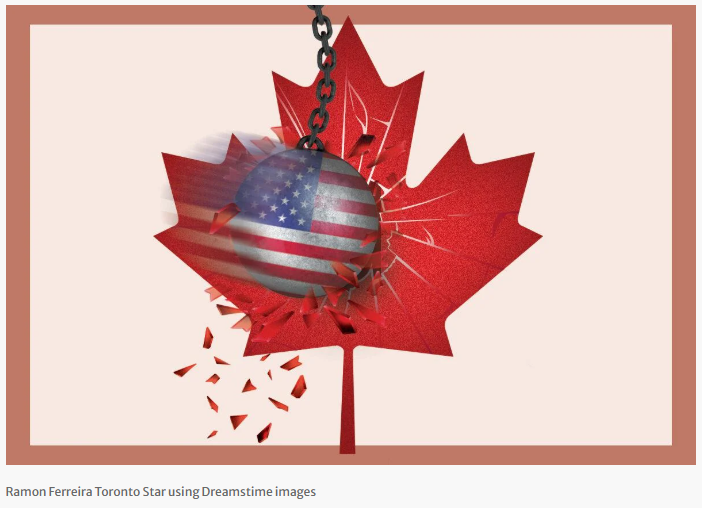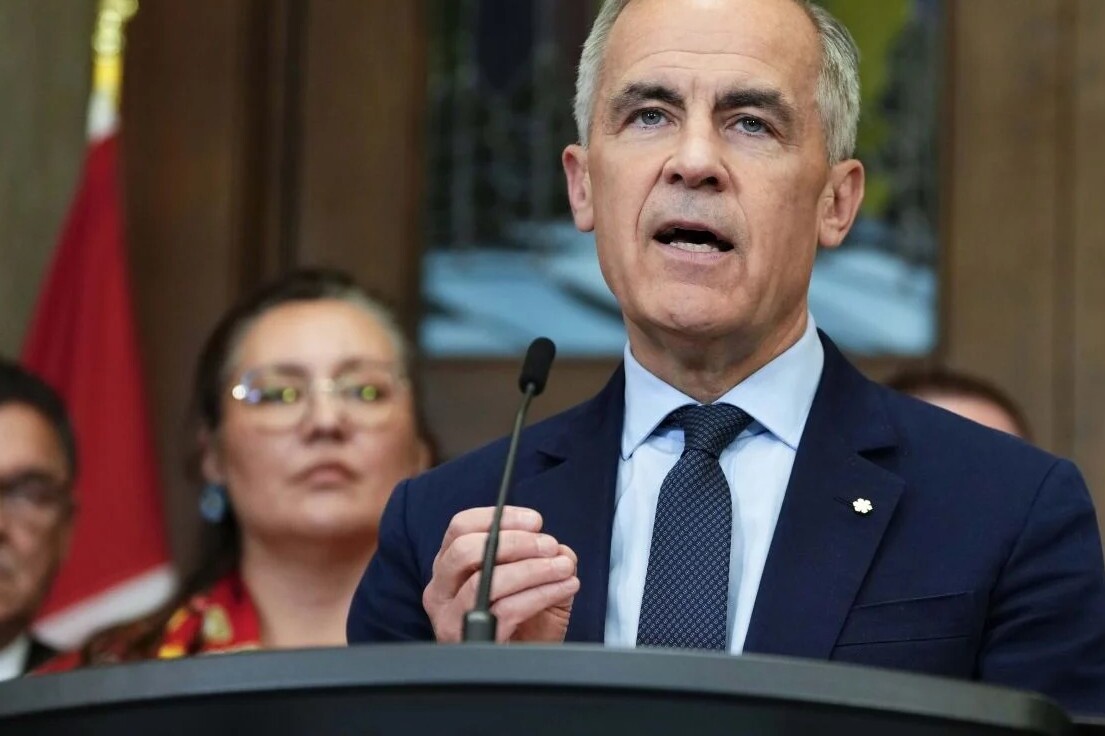By Ana Pereira | The Toronto Star
When U.S. President Donald Trump threatened to launch a full-blown trade war with its closest ally, many Canadians felt as if their best friend had suddenly turned around and stabbed them in the back.
Trump’s string of accusations, along with increasingly hostile suggestions that the U.S. annex Canada as “the 51st state,” have led many to pledge boycotts of American products. The majority of Canadians now support calling on the government to reduce our reliance on the U.S. as a trading partner, according to a recent poll by the Angus Reid Institute of more than 1,800 adults.
Patriotism aside, there are solid economic reasons why Canada might want to consider reducing trade with America, according to economists. Trump’s threats have introduced a major source of uncertainty in a decades-old trade partnership that saw Canada give up some of its independence in exchange for economic prosperity and stability.
It’s a relationship that has benefitted both economies, with nearly 80 per cent of Canadian exports currently ending up south of the border, but it was built on trust, and trade experts say that trust is now gone.
Is achieving a greater degree of economic independence from the U.S. really possible? Can we really undo decades of integration without seeing our economy crumble?
The Star spoke with economists, academics and other experts, including SCP CEO Matthew Mendelsohn, about how the country should best navigate this new era of Trump’s isolationism, and found there are realistic steps we can take to reduce our dependence on the States.

Share with a friend
Related reading
Mark Carney’s economic agenda misses something vital | Toronto Star
Prime Minister Mark Carney's campaign focused on economic growth and sovereignty. He talked a lot about how Trump wants to "break us so he can own us," and yet, so far, details of an ownership agenda are pretty thin. The reality is that Canadians cannot be "masters in our own home" if the home is owned by a U.S. hedge fund. Broadly distributed, local Canadian ownership of our economy and our assets must be a central part of our economic growth strategy. In the Toronto Star, SCP CEO Matthew Mendelsohn writes that he sees some early, positive signs of such a plan coming from the federal government and spells out what a real ownership agenda that serves "the owners of Canada" would look like.
HBS Case | Taylor Guitars: Making Employee Ownership Work the Taylor Way
After a successful transition to 100% employee ownership, Taylor Guitars' experience is now the subject of a Harvard Business School case. Read more about how their experience brings the evidence to life: "Employee-owned firms grow faster, default less often, are far more resilient in economic downturns and pay their people more, even before you factor in the wealth-generating effects of ownership. It’s also a great business succession option as it lets owners exit for fair prices while protecting the people and communities they care deeply about.”
Now #hiring: Executive Assistant to the CEO
Social Capital Partners is seeking a highly organized and proactive Executive Assistant (EA) to the CEO who thrives in a fast-paced, mission-oriented environment. While this is a true EA position focused on keeping the CEO and team operating at a high level, it is also a unique opportunity to engage in a wide range of stimulating policy and strategy conversations, including the chance to conduct research, contribute to policy initiatives and engage with influential leaders in the field.


